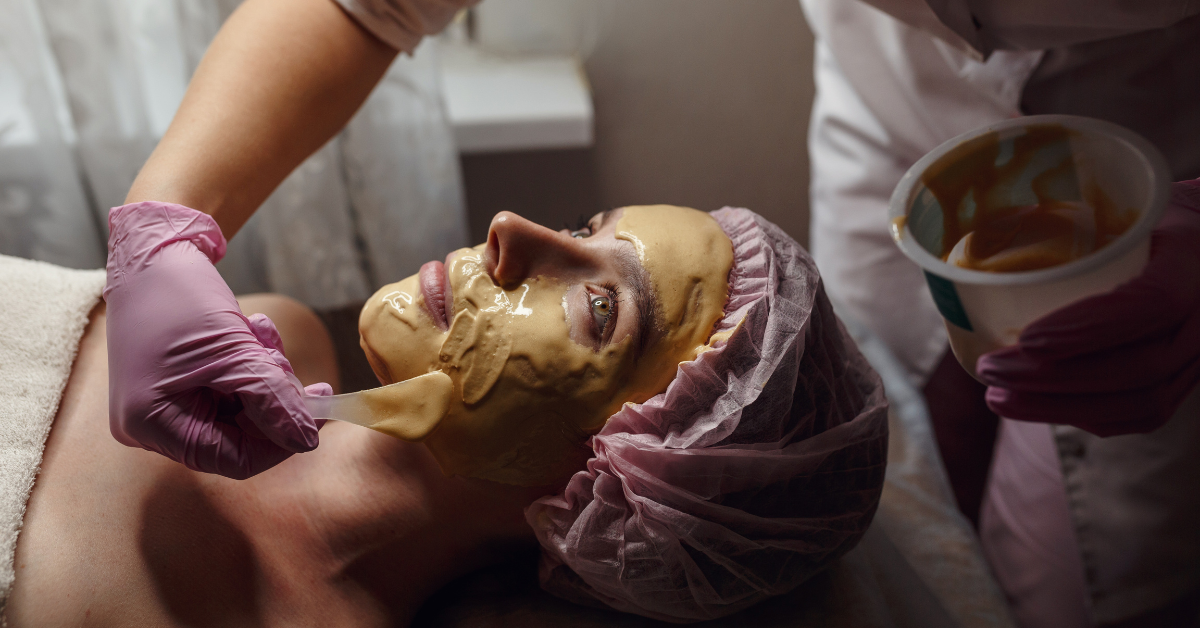July 2, 2024
What Does an Esthetician Do?

Estheticians are a key part of the beauty industry. They help you maintain your look by offering makeup and skin care products, treatments, and recommendations.
Skincare has become an important part of the beauty industry as people look more towards the intersection of beauty and wellness. Total spending on beauty in general, and makeup and skincare in specific, is projected to grow at least through 2027. Younger consumers in particular are looking not to “put on a face” but rather to take better care of their skin while looking good…and estheticians are perfectly poised to meet this need.
Roles and Responsibilities
First of all, estheticians are not dermatologists. Estheticians work in the beauty industry and their primary goal is to make you look good. They are not qualified to treat diseases of the skin, although an esthetician may work with your dermatologist…for example, your dermatologist may diagnose you with an allergy to certain products and then your esthetician will work with them and you to find products you can use safely.
Estheticians perform skincare treatments such as facials, exfoliation, and removal of unwanted hair. They also work with you to determine how best to care for your skin and can help reduce signs of aging and manage (but not treat) basic skin conditions such as acme, eczema, and hyperpigmentation. They can’t prescribe medication, do invasive procedures, or diagnose medical conditions. As an esthetician, if you suspect somebody has a medical condition, it’s your job to advise them to consult their dermatologist, but you cannot diagnose it.
The other side of the job is professional makeup application, which overlaps with cosmetologists. Estheticians can also do brow and lash treatments, apply spray tan such that it looks good, etc. If somebody has a skin condition, they may go to an esthetician rather than a cosmetologist for makeup. Unlike cosmetologists, estheticians do not cut and style hair.
Estheticians may work at salons, but often work at spas or medical spas. They may work for a dermatologist or other medical practices. Some also work for skincare companies, either working in sales or assisting in customer service. Resorts and cruise ships may also hire estheticians to work in on site/on board spas.
Experienced estheticians might seek specialized certifications, such as in lash extensions or permanent makeup. They might become instructors, manage spas, or act as skincare consultants in a variety of areas.
To be a good esthetician, you need to have the skills to perform facials and other treatments, the artistry to do makeup and similar and, of course, good customer service and consultation skills. You may spend extensive time with clients to help them better manage their skin, or you might be working in an area where you see clients once and have to quickly build trust.

Training and Certification
Estheticians are certified and licensed professionals who have to pass certain training requirements. Exact details vary by state. In Oregon, you need to have 600 hours of training at an accredited school. Of these hours, 220 must be in practical experience where you work in a school salon under supervision, 20 are on Oregon-specific law, and 20 are career development.
You then have to pass written exams for your fields of practice and the basic Oregon Laws and Rules examination.
Note that some students choose to take both the esthetics course and another course, such as one in hair design or nail technology, so that you can have broader options when you graduate.
You can then pursue continuing education, for example you might choose to specialize in medical esthetics and work with a dermatologist, or in holistic skincare. Refresher course are also good, as skincare technology is constantly improving and you don’t want to be left behind along with your clients.
Specializations in Esthetics
While you absolutely can spend your entire career as a specialist, you may find yourself drawn to a specific area. Specializing can increase your income, but can also leave you with less variety in your work and fewer opportunities when you need to find a new job.
Some niche areas are:
- Medical esthetics. Medical estheticians (often spelled aestheticians) focus on treating more advanced skin ailments. They work in dermatologists’ offices or other medical environments. There’s no special certification, but this is a career route for those who want to help people with, for example, stubborn acne. They may also work at medical spas.
- Spa therapy. Many estheticians work at day spas or spa resorts. Here, they provide treatments as part of an overall plan, coordinating with other specialists such as massage therapists.
- Aromatherapy. Scent is powerful. Estheticians who specialize in aromatherapy use scented oils to help people with stress, anxiety, sleep issues, or other mental health issues. Aromatherapy is often combined with massage therapy, but estheticians learn which oils to use for which patients and how to use essential oils safely.
- Cosmetic skincare. You might also choose to specialize in helping people look the best, such as if they have a major event coming up. Cosmetic skincare specialists may also work with people who’s looks are part of their job, such as actors or models.
All of these niche areas can be lucrative and help you develop your career.
Work Environment
Estheticians can work in a variety of settings and the work environment varies. For example, if you work in a medical office, you will be seeing people who have significant skin problems (and likely stress from them) and want their problems fixed. At the other end, if you work in a salon, you may be spending more of your time on makeup artistry and helping people choose the right moisturizer.
Estheticians who work in salons, day spas, and medical spas typically have long-term customers they develop relationships with over time, and need to sustain those relationships. On the other hand, if you work in a resort spa or on a cruise ship, you may only ever see a given client once and need to quickly build rapport and trust, and listen to them about what they are already doing. Depending on your personality, one of these may work better than the other.
Another option is to open a private practice. This has vast potential for growth, but requires that you be a good businessperson who can handle your own admin, and may require additional training in business skills and entrepreneurship.

Career Opportunities and Growth
Estheticians have numerous opportunities for growth. Becoming a specialist is one direction. Another is to learn business and become a spa manager or strike out on your own.
Some estheticians can earn a lot of money by becoming skincare consultants, especially to actors, models, and the like. Others may be content to know there will always be demand for their work. You can push for as much as you want or enjoy doing your job. Finally, you can become a trainer or mentor and teach younger people how to pursue this wonderful beauty career.
Becoming an esthetician can be lucrative and is a shorter training course than some other beauty careers. You need to start by taking an accredited esthetician course that meets the requirements to practice in Oregon. Contact Phagans School of Hair Design to find out more.


